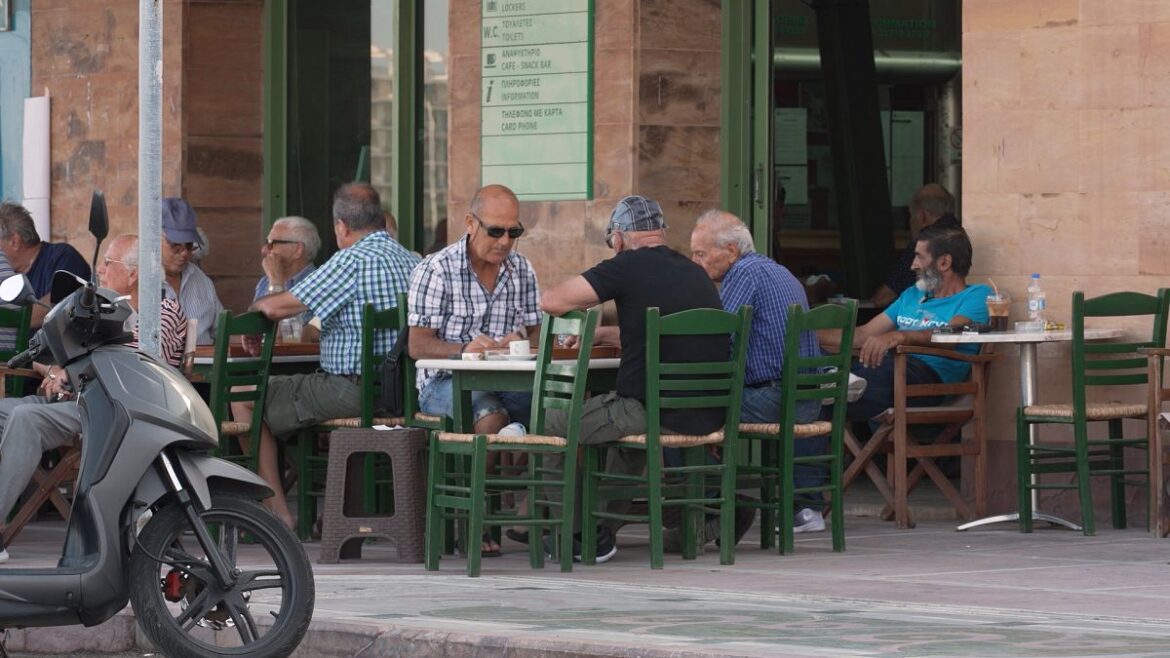Greece is preparing to face a real demographic collapse, the effects of which on the social system are numerous in the long term, while the country is barely recovering from the financial rescue plans.
Empty villages, disillusioned young workers and government officials searching for solutions: Greece is bracing for a major demographic collapse, fueled by falling birth rates, mass emigration and low fertility rates.
Six years after Greece emerged from the financial bailouts that officially ended a deep economic crisis, the country is now facing a new emergency that could impact its entire social and economic structure: population decline.
Projections suggest that by 2070, Greece’s population could decline by 25%, which is well above the European average, which is forecast at around 4%.
In 2022, the country recorded fewer than 77,000 births, the lowest figure in nearly a century, while deaths nearly doubled to 140,000 in the same period. There is no sign that this trend will change anytime soon.
“Demographic collapse is literally becoming an existential challenge for our future”warned Greek Prime Minister Kyriakos Mitsotakis.
The last population census, in 2021, revealed a 3.1% decline in the total population in just ten years, to less than 10.5 million people.
This decade broadly corresponds to the economic crisis that the country experienced and which caused the exodus of around half a million Greeks, especially among the young and those with a certain level of education.
Those who remained in the country continue to face a difficult labour market recovery, characterised by high unemployment and low wages, making it even more difficult to find jobs and have the prospects of starting a family.
In Chios, an island of 50,000 people in the northern Aegean Sea, Euronews spoke to Mary and Nikos, a couple in their thirties who left Greece for the United States two years ago and now only return for holidays.
“If you have to work 10 to 12 hours a day and not earn as much money as you expect, how can you buy a house? And how can you raise a family? It’s impossible,” Mary said. Nikos says that although they love Greece, they cannot imagine returning there one day, even if conditions were to improve.
The island of Chios is paying a heavy price for emigration, with several generations gradually deserting the area in search of a better life.
Today, it is not uncommon to see villages that are completely or nearly empty, with only a handful of elderly residents, particularly in the north of the island.
Greek economist Nikos Vettas highlights the economic consequences of this demographic paradigm shift, which puts additional pressure on Greece’s pension system and health services: “The main problem is that the number of working people will decrease. And now these people will have to support a large population of elderly people.”
However, Nikos Vettas adds that some measures could be taken to cushion the shock: “We need to increase productivity in the country, make greater use of technology, encourage the arrival of migrants, especially in high-productivity jobs.”
In 2023, the Greek government dedicated a ministerial portfolio to the issue of the demographic crisis for the first time. Led by Sofia Zacharaki, the ministry implemented a series of measures, including tax breaks and an increase in child benefits for births, in the hope of encouraging the birth rate in the country.
While Sofia Zacharaki acknowledges that these efforts will not be enough to solve the problem, she insists that they represent a step in the right direction to address what she calls “the greatest threat Greece faces today.”



